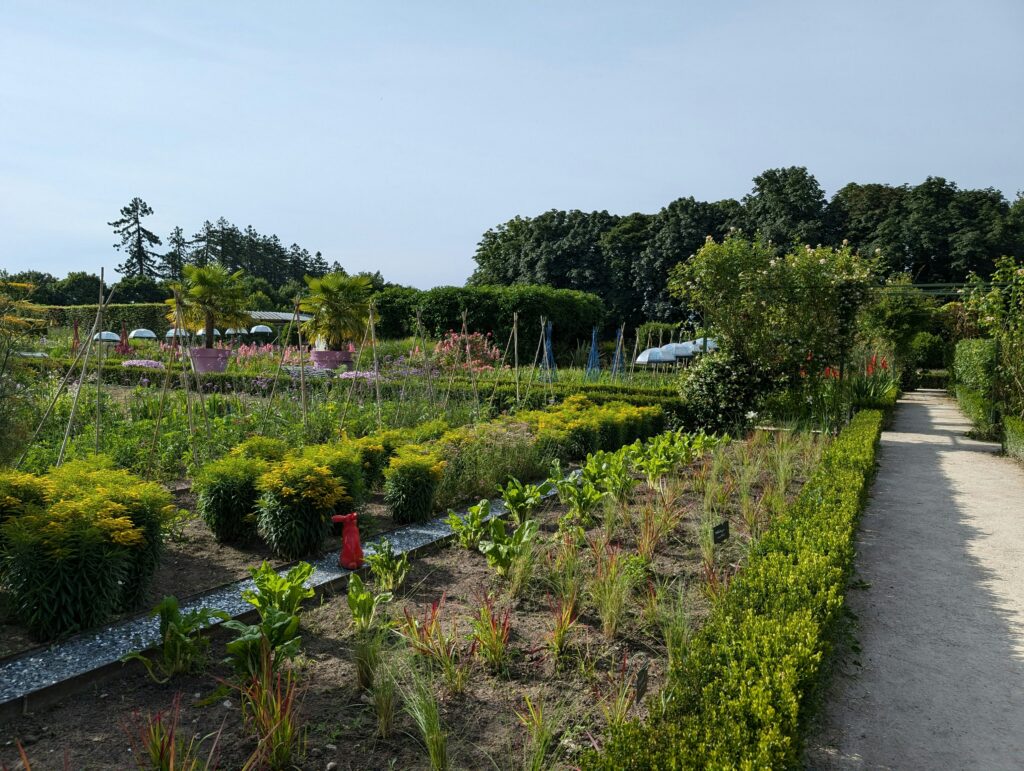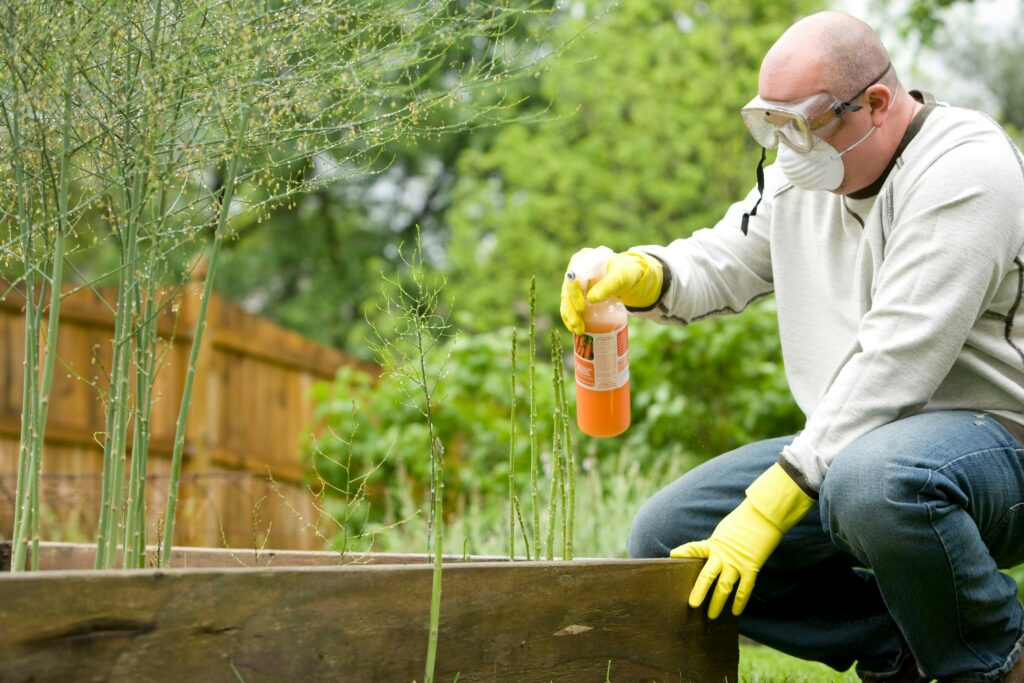Resources for Interns & Students
go.ncsu.edu/readext?237497
en Español / em Português
El inglés es el idioma de control de esta página. En la medida en que haya algún conflicto entre la traducción al inglés y la traducción, el inglés prevalece.
Al hacer clic en el enlace de traducción se activa un servicio de traducción gratuito para convertir la página al español. Al igual que con cualquier traducción por Internet, la conversión no es sensible al contexto y puede que no traduzca el texto en su significado original. NC State Extension no garantiza la exactitud del texto traducido. Por favor, tenga en cuenta que algunas aplicaciones y/o servicios pueden no funcionar como se espera cuando se traducen.
Português
Inglês é o idioma de controle desta página. Na medida que haja algum conflito entre o texto original em Inglês e a tradução, o Inglês prevalece.
Ao clicar no link de tradução, um serviço gratuito de tradução será ativado para converter a página para o Português. Como em qualquer tradução pela internet, a conversão não é sensivel ao contexto e pode não ocorrer a tradução para o significado orginal. O serviço de Extensão da Carolina do Norte (NC State Extension) não garante a exatidão do texto traduzido. Por favor, observe que algumas funções ou serviços podem não funcionar como esperado após a tradução.
English
English is the controlling language of this page. To the extent there is any conflict between the English text and the translation, English controls.
Clicking on the translation link activates a free translation service to convert the page to Spanish. As with any Internet translation, the conversion is not context-sensitive and may not translate the text to its original meaning. NC State Extension does not guarantee the accuracy of the translated text. Please note that some applications and/or services may not function as expected when translated.
Collapse ▲Welcome, Therapeutic Horticulture Interns & Students!
We’re thrilled to have you join us in the therapeutic horticulture garden! Therapeutic horticulture (TH) internships offer a unique opportunity to gain hands-on experience in this dynamic and rewarding field. You’ll be an integral part of the team, contributing to the well-being of participants while developing valuable skills and knowledge.
This page outlines what you can expect to learn and experience during a therapeutic horticulture internship. Get ready to grow – both professionally and personally!
What You Can Expect to Learn:
During a TH internship, you will gain practical experience and theoretical understanding in various aspects of therapeutic horticulture. Here’s a glimpse of what you might expect to learn:
1. Foundations of Therapeutic Horticulture:
- Understanding the Principles: You’ll learn the core principles and philosophy behind therapeutic horticulture and its application in various settings (e.g., healthcare, rehabilitation, education, community gardens).
- Client Populations: You’ll gain exposure to working with diverse populations, understanding their specific needs and how horticultural activities can be adapted to address them (e.g., individuals with physical disabilities, mental health challenges, cognitive impairments, seniors, youth). The site or sites of your internship will determine how in-depth this goes: consider visiting other sites with different populations to gain more perspectives.
- Goal Setting and Program Planning: You’ll learn how to contribute to the development and implementation of therapeutic horticulture programs, including identifying client goals and selecting appropriate activities, as well as ensuring that your sessions are evidence-based through connecting with current research.
- Ethical Considerations: You’ll be introduced to ethical guidelines and best practices in working with vulnerable populations in a therapeutic setting. Physical, interpersonal, and emotional safety are key elements you’ll apply in practice.
2. Horticultural Skills for Therapy:
- Basic Horticulture Practices: You’ll develop practical skills in essential gardening tasks such as planting, watering, weeding, pruning, propagation, and harvesting.
- Plant Identification and Selection: You’ll learn to identify common therapeutic plants and understand their sensory qualities, cultural needs, and potential therapeutic benefits.
- Adaptive Gardening Techniques: You’ll gain knowledge of adaptive tools and techniques that enable individuals with varying physical abilities to participate in gardening activities.
- Seasonality and Garden Planning: You’ll understand the seasonal cycles of plant growth and learn how to plan garden activities and plant selections accordingly.
3. Facilitation and Group Dynamics:
- Assisting with Group Sessions: You’ll have the opportunity to observe and assist experienced facilitators in leading therapeutic horticulture sessions.
- Communication and Interpersonal Skills: You’ll develop your communication and interpersonal skills in interacting with participants, volunteers, and staff.
- Activity Adaptation: You’ll learn how to modify activities on the fly to meet the individual needs and abilities of participants– or the weather!
- Observation and Documentation: You’ll gain experience in observing participant engagement and behavior, and in documenting session activities and outcomes.
- Providing Support and Encouragement: You’ll learn how to create a supportive and encouraging environment for participants to explore and engage with the garden.
4. Safety and Garden Management:
- Garden Safety Protocols: You’ll learn about safety procedures in the garden to ensure the well-being of all participants, including tool safety, lifting techniques, and awareness of potential hazards.
- Pest and Disease Management (Safe Practices): You’ll gain knowledge of integrated pest management (IPM) strategies and other safe methods for maintaining a healthy garden environment while maximizing participant safety.
- Basic Garden Maintenance: You’ll contribute to the general upkeep of the therapeutic garden, including maintaining pathways, organizing tools, and ensuring the space is welcoming and accessible.
- Understanding Pollinator Protection: You’ll learn about the importance of pollinators and how to create a pollinator-friendly garden environment.
5. Professional Development:
- Networking Opportunities: You’ll have the chance to connect with professionals in the field of therapeutic horticulture and related disciplines.
- Learning Resources: You’ll learn where to access relevant resources, articles, and potentially workshops to further your learning.
- Mentorship and Feedback: You’ll receive guidance and feedback from experienced staff to support your learning and professional growth.
- Understanding the Role of Volunteers: You may have the opportunity to work alongside and learn from dedicated volunteers.
What to Expect in the Internship Setting:
- Hands-on Experience: TH internships are hands-on, so be prepared to get your hands dirty! Be sure to stay actively involved in all aspects of the therapeutic horticulture program.
- Collaborative Environment: You’ll be working closely with a team of staff and potentially volunteers in a supportive and collaborative atmosphere.
- Varied Tasks: Your responsibilities will likely be diverse, ranging from assisting with participant sessions to garden maintenance and program preparation.
- Opportunities for Initiative: Ask questions, share your ideas, and take initiative in your learning. Some of the best TH ideas come from interns with a fresh perspective.
- Direct Interaction with Participants: You will have the valuable experience of interacting directly with individuals benefiting from therapeutic horticulture.
- A Dynamic Environment: The garden is a living, changing space, and each day can bring new experiences and challenges.
How to Make the Most of Your Internship:
- Be Proactive and Engaged: Take initiative in your learning, ask questions, and actively participate in all activities.
- Be Observant and Reflective: Pay close attention to the interactions between participants and the garden, and take time to reflect on your observations.
- Communicate Openly: Don’t hesitate to communicate your learning goals, any challenges you encounter, or suggestions you may have.
- Be Flexible and Adaptable: Therapeutic horticulture often requires flexibility, so be prepared to adapt to changing needs and situations.
- Be Respectful and Empathetic: Approach all interactions with participants, staff, and volunteers with respect, empathy, and understanding.
- Take Initiative to Learn: Seek out opportunities to learn more about specific topics or populations that interest you.
- Document Your Learning: Keep a journal or notes to track your experiences, observations, and insights. This will be valuable for your future professional development, and it may be a requirement of your academic or education program.
New facilitators seeking to provide direct service are strongly encouraged to at least observe active TH programs, and ideally to complete a meaningful internship under the guidance of a seasoned practitioner. This ensures that the highest professional standards are in place as our profession grows and impacts vulnerable populations.
Internships for students pursuing certification as Horticultural Therapists are available throughout the state. Guidelines for internships are set by the American Horticultural Therapy Association.
Students planning to pursue professional registration through AHTA need a combination of horticulture and human service for-credit college courses, as well as at least an undergraduate degree. . We have a partial list of courses that have been considered and/or accepted by the AHTA registration committee in the past, but be sure to consult AHTA directly to verify that any specific course can be counted for professional registration.






